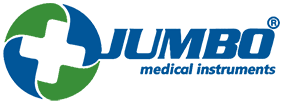The Antigen Test, also known as a Rapid Antigen Test, is a diagnostic test that detects specific proteins on the surface of the COVID-19 virus. This test is considered to be a faster and less expensive alternative to standard RT-PCR tests. The test can be performed within minutes and provides quicker results, allowing medical professionals to identify and isolate COVID-19 cases with greater efficiency.

The Antigen Test Kit is used to collect a mucus sample from the nose by inserting a swab into the nostril. The sample is then placed onto the testing strip that contains specific antibodies that recognize and bind with the COVID-19 proteins. If the COVID-19 proteins are present in the mucus sample, the strip will display a positive result. However, a negative result does not rule out COVID-19 infection, and further testing may be necessary.
The Antigen Test is not as accurate as the RT-PCR test, but it has its advantages. The test can be performed outside of a laboratory and without the need for specialized equipment. This makes it a useful tool for testing in remote areas or other places where resources are limited. Additionally, the Antigen Test can detect COVID-19 in its early stages, enabling healthcare professionals to quickly isolate infected individuals and reduce the spread of the virus.
Several companies have developed Antigen Test Kits for commercial use. These kits have been authorized by health regulatory bodies such as the FDA, WHO, and CE. The manufacturers recommend that the test is performed by trained medical personnel to ensure reliable results.
Despite its benefits, healthcare professionals caution against relying solely on Antigen Tests. The accuracy of the test varies depending on the stage of infection and the viral load present. False positives and negatives are possible, and so cautious interpretation and repetition of the test may still be necessary.
In conclusion, the Antigen Test has emerged as a fast and accessible testing method for COVID-19. The test provides quick results and can be used in remote or resource-limited areas. However, medical professionals advise using it as a complementary tool to other diagnostic methods. The best approach is to combine the Antigen Test with other tests, such as RT-PCR, and clinical signs to get a more accurate diagnosis of the COVID-19 virus.
